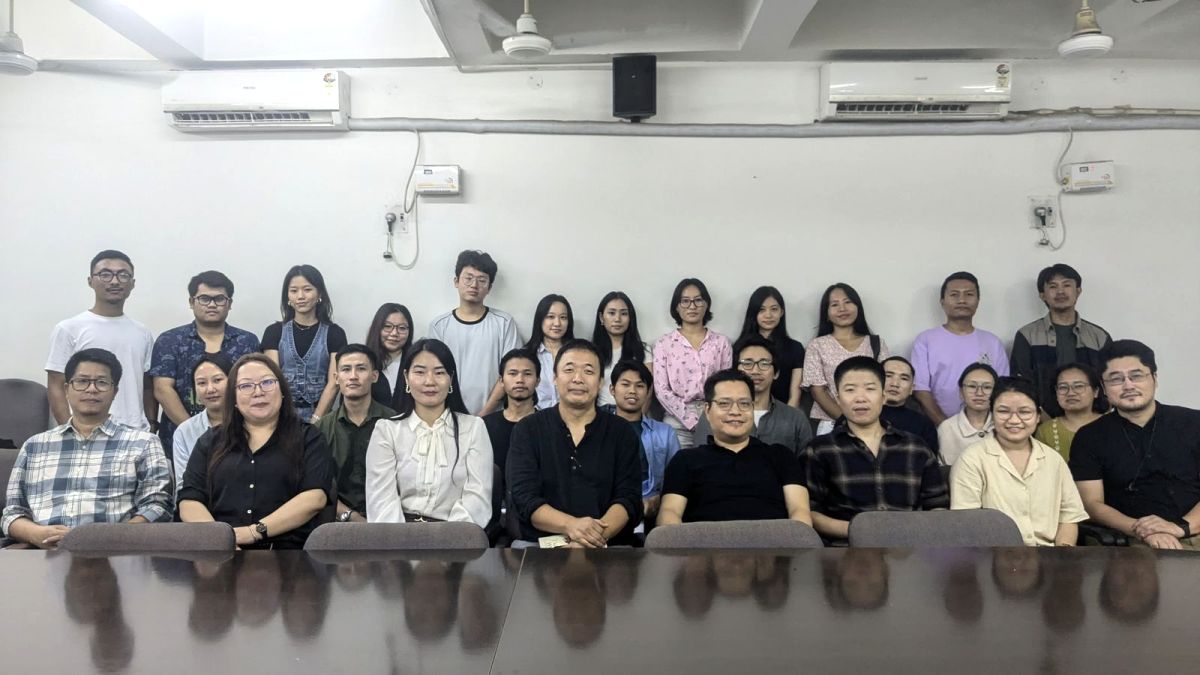THURSDAY, NOVEMBER 13, 2025
- Home
- NSA panel discussion weighs merits, challenges of RIIN
NSA panel discussion weighs merits, challenges of RIIN
Share

DIMAPUR — The Naga Scholars Association (NSA) organised a ‘Panel discussion-cum-GBM’ at the School of Social Sciences, Jawaharlal Nehru University in New Delhi on November 2.
The panel discussion was on the topic ‘Register of Indigenous Inhabitants of Nagaland’ (RIIN) where NSA aimed to provide a balanced and nuanced understood of RIIN, enabling stakeholders to weigh its merits and challenges more thoughtfully, NSA stated in a press release.
The panel discussion on RIIN explored its purpose, implications and public response. RIIN aims to create an official record of indigenous inhabitants, defined as those settled before 1963, to prevent fraudulent claims and reserve jobs for genuine locals.
“However, this initiative has sparked public anxiety, as many worry it could deepen societal divisions and foster exclusionary attitudes,” the release stated.
The first speaker Akhum Longkumer, a member of NPMHR (Naga Peoples Movement for Human Rights)., dwelled on the mismatch between the policy’s goals and ground realities and concerns about whether RIIN can foster unity or increase parochialism. Longkumer suggested less divisive methods for protecting indigenous rights, like community-based approaches.
He emphasised that identities are constructed through both government and social processes, referencing Foucault’s concept of governmentality to question state-driven control over identity.
He also highlighted the importance of constitutional provisions like Article 371A and the 16-point agreement, questioning whether these align with or oppose the RIIN initiative.
Overall, the discussion underscored the tension between safeguarding indigenous rights and fostering inclusivity, raising questions about whether RIIN advances or undermines unity in Nagaland.
The next speaker Dr. Ngoru Nixon, assistant professor of School of Law, Governance and Citizenship at Dr. BR Ambedkar University, Delhi, expressed initial confusion about the concept of an ‘indigenous inhabitants’ certificate in Nagaland, as Manipur only has scheduled tribe (ST) certificates.
He noted that the RIIN must be viewed within the broader context of citizenship and identity issues in India's northeast, drawing parallels with Assam’s NRC (National Register of Citizens) and controversies in Arunachal Pradesh over ST status, as well as the Khasi Lineage Act.
Dr. Nixon highlighted that the RIIN discourse, unlike Assam’s citizenship debates, often revolves around resource access. He mentioned that critiques of RIIN argue it threatens wider Naga solidarity by imposing new, restrictive definitions of ‘indigenous.’
Historically, guidelines from 1960s and 1970s defined indigenous inhabitants through criteria such as electoral rolls, house tax records, or property ownership before December 1, 1963. However, the September 2024 order shifted this definition, now requiring individuals to belong to one of Nagaland's 15 recognised tribes to qualify, he said.
He also pointed out the inconsistency in defining ‘indigenous’ over time, noting that earlier criteria focused on permanent residence, not tribal identity.
During the audience discussion, Dr. Nixon and panel members examined the relationship between the ST (scheduled tribe) certificate and the indigenous inhabitant certificate in Nagaland.
Nixon questioned the overlap between these certificates, asking how they intersect and why the ST certificate alone was deemed insufficient, noting that earlier, the concept of indigenous status was more inclusive.
Dr. Longkumer echoed this concern, while Dr. Shelmi highlighted the ambiguity surrounding the term ‘indigenous,’ pointing out that discussions often focus more on procedures than on its deeper meanings.
The panel discussion concluded with an open-ended dialogue, encouraging participants to explore the complexities of identity, benefits, and state policies further.
“This exchange allowed for diverse perspectives on the implications of the RIIN and the evolving definitions of indigeneity, fostering a deeper understanding of how these issues affect the community and its members.
“The conversation remained inclusive and thought-provoking, inviting continued reflection on the balance between safeguarding indigenous identity and navigating the intricacies of government frameworks,” the release stated.
Around 40 scholars from various universities across Delhi participated in the panel discussion.
Earlier, the session started with opening remarks by Dr. Apila Sangtam, general secretary of NSA followed by welcome address by Dr. Kharingpam Ahum Chahong, president of NSA. The session was moderated by Dr. Shelmi Sankhil, assistant professor at Dr. BR Ambedkar University, New Delhi.
Also read: ICFAI University hosts awareness talk on effects of tobacco

